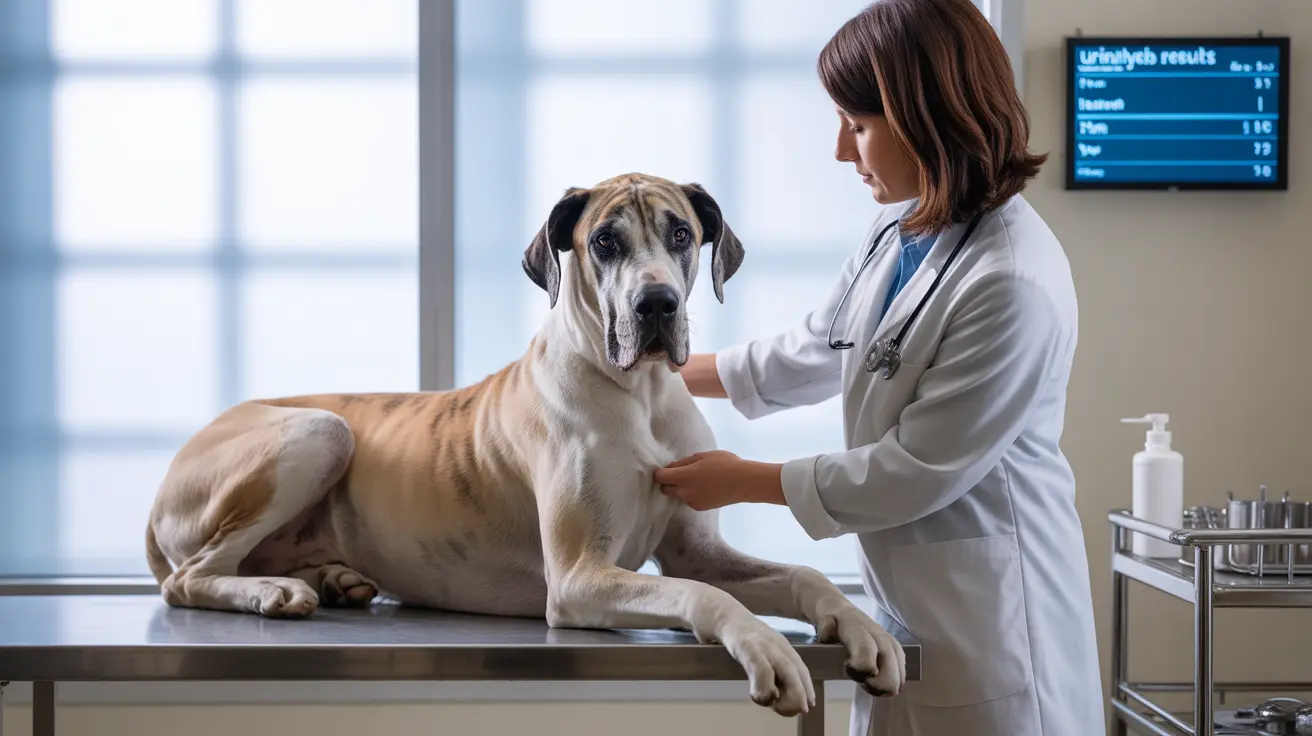If you've noticed your dog's urine has developed an unusually strong or foul odor, you're not alone. Many pet parents experience this common concern, which can range from a temporary dietary issue to a sign of more serious health problems. Understanding the causes and knowing when to seek veterinary care is crucial for maintaining your dog's urinary health.
In this comprehensive guide, we'll explore the various reasons behind strong-smelling dog urine, how to identify potential health issues, and what steps you can take to address this concerning symptom.
Common Causes of Strong-Smelling Dog Urine
Urinary Tract Infections (UTIs)
UTIs are one of the most frequent causes of foul-smelling urine in dogs. When bacteria enter the urinary tract, they can cause inflammation and infection, leading to a distinctively strong, unpleasant odor. Along with the smell, you might notice your dog urinating more frequently, straining while urinating, or having accidents in the house.
Dehydration and Concentrated Urine
When dogs don't drink enough water, their urine becomes more concentrated, resulting in a stronger smell. This concentration of waste products can make even normal urine appear darker and smell more pungent than usual. Ensuring your dog has constant access to fresh water is essential for maintaining proper hydration and urinary health.
Medical Conditions That Affect Urine Odor
Kidney Disease
Kidney problems can significantly impact urine smell and composition. When kidneys aren't functioning properly, they may fail to filter waste products effectively, leading to more concentrated and foul-smelling urine. Additional symptoms might include increased thirst, lethargy, and changes in appetite.
Diabetes
Dogs with diabetes may produce urine with a sweet or fruity smell due to excess sugar in their system. This condition requires immediate veterinary attention, as untreated diabetes can lead to serious health complications.
Dietary Influences on Urine Odor
Food Quality and Composition
The type and quality of food your dog eats can significantly impact their urine smell. High-protein diets or foods rich in certain compounds can create stronger-smelling urine. Additionally, sudden dietary changes may temporarily affect urine odor while your dog's system adjusts.
Supplements and Medications
Certain supplements or medications can alter the smell of your dog's urine. Always inform your veterinarian if you notice changes in urine odor after starting new supplements or medications.
When to Seek Veterinary Care
While some variation in urine odor is normal, certain signs warrant immediate veterinary attention:
- Extremely foul or unusual smell that persists
- Blood in the urine
- Difficulty or pain while urinating
- Increased frequency of urination
- Changes in drinking habits
- Accidents in previously house-trained dogs
Prevention and Management
To help maintain healthy urinary function and minimize strong urine odors:
- Ensure constant access to fresh, clean water
- Feed a high-quality, balanced diet
- Maintain regular bathroom breaks
- Schedule regular veterinary check-ups
- Keep the genital area clean and well-groomed
Frequently Asked Questions
Why does my dog's pee smell so bad all of a sudden?
Sudden changes in urine odor can be caused by urinary tract infections, dehydration, dietary changes, or underlying medical conditions. If the strong smell persists for more than 24-48 hours, consult your veterinarian.
What health issues can cause foul-smelling urine in dogs?
Common health issues include urinary tract infections, kidney disease, diabetes, bladder stones, and certain metabolic disorders. Each condition may produce different types of odors and require specific treatment approaches.
How can I tell if my dog's smelly urine is due to a urinary tract infection?
Signs of a UTI include strong-smelling urine, frequent urination, straining to urinate, blood in the urine, and accidents in the house. Only a veterinary examination can confirm a UTI diagnosis.
Can my dog's diet affect the smell of their urine?
Yes, diet significantly affects urine odor. High-protein foods, certain vegetables, and some supplements can make urine smell stronger. Proper hydration helps dilute urine and reduce strong odors.
When should I take my dog to the vet for strong-smelling urine?
Seek veterinary care if strong-smelling urine persists for more than 1-2 days, or if it's accompanied by changes in urination habits, discomfort, increased thirst, or other concerning symptoms.






